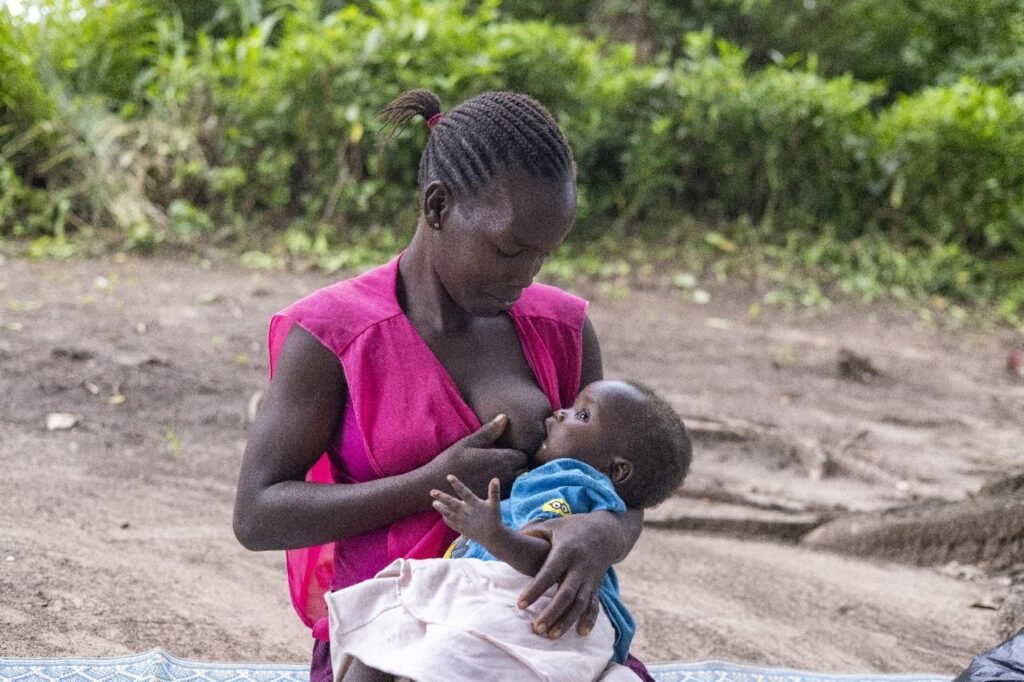The Ministry of Health and UNICEF are aiming at launching a nationwide campaign for World Breastfeeding Week 2025 in a bid to increase the number of babies who are exclusively breastfed.
In joint press statement extended to the Nile Witness today, the government and UNICEF said the goal of this campaign is to reach a national target of 80% of children under six months being exclusively breastfed by 2027.
The country has already made significant progress, with exclusive breastfeeding rates for infants under six months rising from 45% in 2010 to 73% in 2024.
However, this still means that nearly three out of every ten newborns are missing out on the optimal start to life that breastfeeding provides.
This year’s theme, “Prioritise breastfeeding: Create sustainable support systems,” is a call to action for all sectors of society.
Breastmilk is described as nature’s perfect first food, offering a baby all the nutrition they need for their first six months and building immunity against common childhood illnesses.
In a country facing challenges like food insecurity and high malnutrition rates, promoting breastfeeding is crucial.
“Prioritizing breastfeeding is not only the mother’s burden,” said Hon. Sarah Cleto Rial, South Sudan’s Minister of Health. “It requires the active commitment and support of everyone.” She emphasized.
According to her, the ministry is focusing on empowering healthcare workers with skills to provide breastfeeding counseling and strengthening the link between hospitals and communities.
Barriers mothers face include cultural practices, a lack of support at home and work, misinformation, and the aggressive marketing of breastmilk substitutes.
The campaign will address those challenges by strengthening community support systems through mother-to-mother groups and mobilizing religious and traditional leaders to help dispel myths and promote positive social norms.
Noala Skinner, UNICEF’s Representative in South Sudan, emphasized the importance of this effort.
“Breastfeeding is a child’s first vaccine and the best source of nutrition. Investing in protecting, promoting, and supporting breastfeeding is investing in South Sudan’s most valuable resource, its children.” She stated.
By working together with development partners, South Sudan aims to break down the barriers mothers face and create a supportive environment where breastfeeding is a foundational pillar of sustainable development and child survival.
